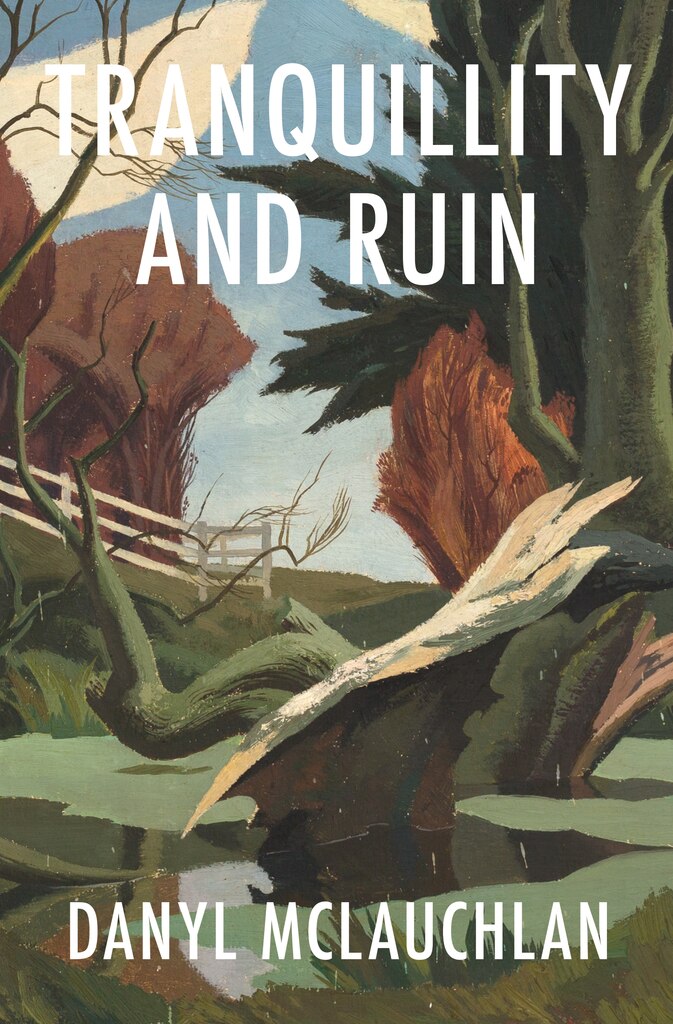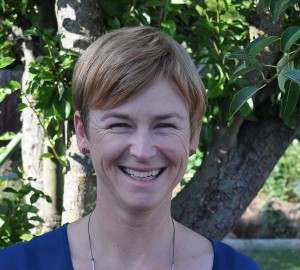Danyl McLauchlan, Tranquility and Ruin

Tranquility and Ruin by Danyl McLauchlan
Wellington: Victoria University Press (2021)
RRP: $30, Pb, 200pp
ISBN: 9781776564118
Reviewed by Rachel Smith
From the opening lines of this book of essays by Danyl McLauchlan, we are off on a journey of uncertainty. In the foreword, McLauchlan warns us this will be the case, that as much as the essays are centred on the themes of tranquillity and ruin, it is uncertainty that will walk beside us.
All of the essays are pairings of science and philosophy, interwoven with the personal story of McLauchlan’s depression and his search for answers. His writing is personal and welcoming, like listening to a story told by a good friend. It is honest and open, revealing the frailties, indecision and mistakes made by himself and the society we live in. And because of this it is also funny.
The first two essays, ‘Arise and Pass Away’ and ‘The Valley and the Stream’, probe the uncertainty of the mind, delving into mindfulness and meditation as a therapy for depression and anxiety, and the many questions that arise as a scientist learns more about what is essentially a Buddhist practice. The big philosophical questions that continue throughout the book begin here: what is enlightenment and awakening? what is being? what is consciousness, how does it work and why does it exist? what is it to be uncertain of answers to these big questions?
It is serious stuff written with a light hand, the prose well formed with ideas and details, held together by a strong structure which moves naturally between McLaughlan’s present personal world, wandering the streets with insomnia or attending a silent retreat, and specialised knowledge.
And it turns out that the first two essays are warm-ups for what comes next. In ‘The Child and the Open Sea’, we follow McLauchlan’s intelligent mind into the lengthy central piece of the book, where he introduces the effective altruism movement. At a New Zealand Effective Altruists retreat, McLauchlan discusses what is effective altruism (short answer, it is living your life to do the most good possible), has conversations on existential risk while rolling out roti bread, and attends workshops on global poverty, animal suffering (domestic and wild) and the threat of AI. The philosophical implications of effective altruism, the how and why to do this, are vast, and this essay contains many philosophical theories, McLauchlan breaking down complicated texts into morsels that most will follow.
From here McLauchlan eases us out, slightly, with ‘The Hunger and the Rain’, set during his stay at the Bodhinyanarama monastery. Here he questions further the themes of religion, atheism, science, rationalism, philosophy and altruism.
The book ends gently, beautifully even, in the ‘Afterword’, with McLauchlan and his young daughter talking about the concept of time.
It’s raining softly and the light is falling. It has been more than five minutes, and the timer of my phone is still running. The bus is still coming. The streets are wet and teeming, and as the rain comes down harder all of the noise softens and fades and the lights from the cars and streetlights fade into one another, running the colour of rain. The raindrops fall, slowly, and Sadie and I sit at the bus stop holding hands, slowly falling through time together. (p. 191)
And in the end, we are left with the feeling of an uncertain world and our place in it, and a book to recommend and read again.
Rachel Smith
Rachel Smith has been published in journals and anthologies in Aotearoa New Zealand and overseas including Best Small Fictions 2020 and Best Microfiction 2019, and is an editor at Flash Frontier.@rachelmsmithnz1 http://rachelmsmithnz.wix.com/rachel-smith

